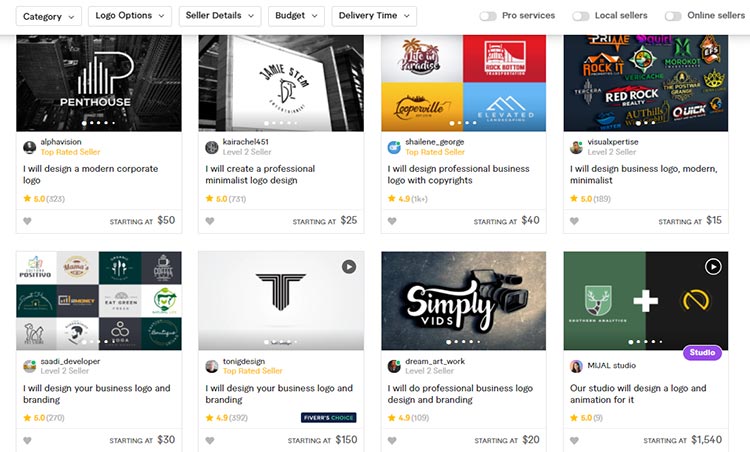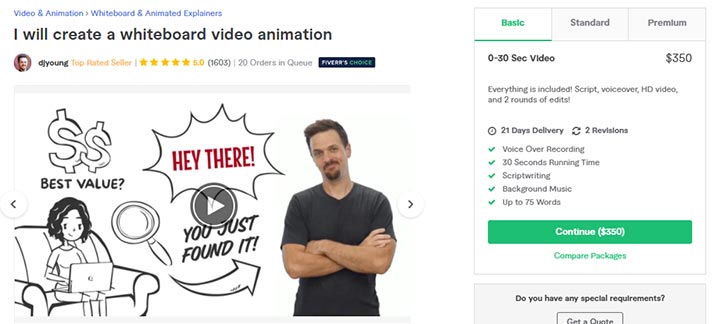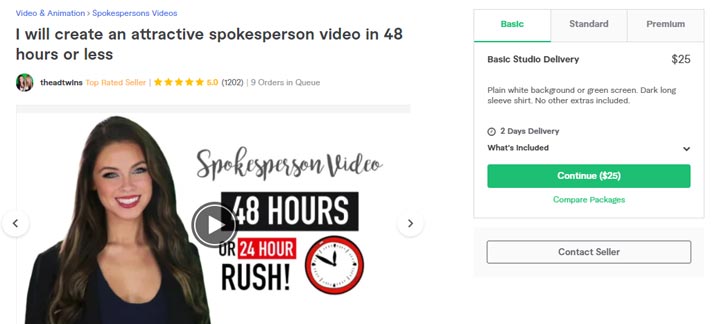Last year was rough for businesses around the world, so I’m sure many people are wondering: Is it a good idea to start an online business in 2021? What are some best online business ideas that can be launched from home?
In 2020, almost every city with high cases of covid19 had varying degrees of shelter-in-place orders and forced people to stay indoors. Businesses that were already thriving online and relied on online orders and deliveries grew steadily throughout the year. Small businesses without online presence had to adapt, bring their business online, and create other means of offering their product or services continuously. Some were successful, but others were not.
This post should be able to help you decide if it’s a good idea to launch a business from home now…or not. I’m also going to discuss some of the most profitable online businesses at the height of last year’s pandemic and the best businesses to start at home in 2022.
3 Considerations Before You Pick One from these Online Business Ideas
Even if ANYBODY can launch an online business these days, it doesn’t necessarily mean you can choose any kind of business and it will succeed no matter what. Before you decide on the type of online business you want to launch, it is important to consider these three things:
Specialization
Everybody can learn to handle the business on-the-go, but you must choose a niche or industry that:
- you specialize in,
- are planning to specialize in, or
- simply just passionate about.
Going into a business, such as cryptocurrency, without any knowledge or interest in it, is risky since there’s a higher chance that you’d get bored even before you launch. If for example, you’re more interested in something like robotics or AI, then decide what kind of online business (e-commerce, consulting, content, etc.) they fit best.
Investment
Some online businesses could also require a significant amount of start-up money. For example, if you’re planning to hire a virtual assistant to help with running the business, this could be at least a $500 monthly commitment.
If you choose to build a custom online store and outsource the job, then know that it could cost between $1,000 to $50,000 depending on the complexity of the project, the platform you select (Shopify, WordPress, Magento, etc.), and other requirements. Maintenance (hosting, domain renewals, chat support agent, etc.) are also other costs you may face with this route.
Time Commitment
There are online businesses with minimal expenses, but they would require your time commitment instead. For example:
- YouTube channel or Twitch live streaming: You would need regular videos uploaded or live streaming scheduled almost daily to make a dent in that particular online space such as makeup tutorials, Minecraft gaming, entertainment news, and so on.
- Blogging: You can set-up a blog for as low as $30, but producing its content (the words, images, videos, etc.) would take time.
- Vegetable gardening: Depending on the type of plant/vegetable you wish to focus on, this would require you to get down and dirty germinating seeds, taking care of seedlings, and assisting fruits/leafy veggies until they reach harvest date. For some people, this can be very calming (and could just require a couple of minutes a day), but for others, this can take a longer time.
How much time can you commit to the online business you plan to launch? How much money can you spend on this venture? And what niches are most attractive to you? Decide these three things when checking out the best online business ideas below:
5 Best Online Business Ideas You Can Follow
The following online business ideas can all be launched from the comfort of your own homes. The time commitment, cost, and niche vary, so pick based on which one would be most appropriate to your setting, finances, and personal interest.
1. Modern Agriculture & Grown-in-a-lab Food
Perfect for people who have a huge backyard or free garage, urban gardening is a good business model especially if you’re going to focus them on food. After all, food is one of human’s basic needs, so food will always be on-trend regardless of what’s happening in the world.
Aside from vertical farming (thanks to technologies like hydroponics or aquaponics), there are even lab-grown meat industries slowly creeping into the market.
- How to get started: The cool thing about these modern agricultural concepts is that learning them is free. Join a Facebook group about any type of farm you want to venture into.
- Outlook: The future of homegrown vegetables will always be bright. Lab-grown meat is 50/50 since there is a lot of supporters and critics.
2. Everything Cannabis-related (depending on your location)
As the legal use and growing of marijuana continue to expand across the U.S. (and even in other countries), the potential for a wide range of Cannabis-related products is now a business model for the taking. But aside from the obvious route of opening up a dispensary (which involves a TON of legalities, a brick-and-mortar storefront, and $1 million in startup money), there are other routes to take.
Examples that you could start from home include edibles, beauty products (lotion, creams, and other oil-based items), and marijuana accessories.
Got a legal or marketing background? You can even start a consulting firm or marketing agency for other people who would want to get into the cannabis industry. There is also space for affiliate marketing, app development, and online content (blogging, YouTube, influencer marketing), and so on.
- How to get started: Look into local laws, check the market for possible sub-niches, learn everything you can about the type of cannabis business you’d want to venture into.
- Outlook: Not all states have yet to legalize marijuana planting/selling, but it is expected to spread in the coming years.
3. Social Media and Website Flipping
I talked about domain flipping in the past and discussed how you can earn from investing domain names for as little as $10. In website flipping, the difference is that you’ll be working on the domain and turning it into a real website, bringing in some revenues, then selling the entire site to places like Empire Flippers for thousands of dollars.
In social media flipping, the concept is similar. You create an Instagram account, Facebook group, Pinterest profile, Tiktok account, or other social media accounts, make the profile famous (either by getting followers or going viral), then selling the online space to another person or third-party company.
- How to get started: Decide if you want to flip sites or social media accounts. Learn everything you can about promoting that online space. Prep it for sale.
- Outlook: Domain flipping had been around for over a decade and it hasn’t stopped. The coronavirus proved this point when any domain that had the word “corona” shot up to $1,000+ resale value. Flipping social media accounts can be lucrative if you get updated with the platform-specific terms, trends, and niches.
4. Private Label Biz, Dropshipping & Amazon FBA
I squeezed these three best online business ideas into one entry because they are very similar: they’re scalable businesses that do not require you to invent products, manufacture products, or even store products yourself.
In a private label business, you decide on a product, find a manufacturer that sells that product, and label them with your own company’s label.
In dropshipping, you decide on a product, find a supplier that sells the product, list the product on stores like Amazon (or your own online store), then when someone buys the product, the supplier would ship the item directly to the customer.
Amazon FBA (where FBA stands for “fulfillment by Amazon”) is a warehousing and shipping service. You bring all your products to any FBA facility, list the products on Amazon, and whenever a customer buys the product, Amazon will take care of the packing and shipment for you.
- How to get started: Decide what product you want to sell. Choose the business model and learn everything you can about your chosen route.
- Outlook: In 2020, selling products online has been proven to withstand even pandemics. It’s probably safe to say that online shopping would be here for a long time. You just need to pick the right niche for this to work in your favor.
5. Focus on Fitness
Many people stress-ate the entire 2020 and are now focused on getting healthy. As such, what better way to take advantage of this than to get into the business of fitness. There are many ways you can do this, such as becoming a fitness coach, creating custom workout plans, selling fitness products, creating a fitness app, and writing (or talking) about fitness, among others. You can even develop a new fitness product.
- How to get started: Match your skills with the type of business you’re most interested in. Decide if you’re going to do it by yourself, or outsourcing (for product manufacturing or app development). Become an expert at marketing.
- Outlook: Fitness is always on-trend. Have you seen the modern jumping ropes that have been all over Tik-Tok for months? For an item that has been around for several decades, these jumping ropes still sold like hotcakes in 2020. And I think that’s very cool.
Turning Any of These Best Online Business Ideas into Reality
The best thing about these online business ideas is that they’re very scalable. You can start small, find a market, then grow big as you go.
Just make sure you do your brainstorming now, decide based on research, and start working on your business as soon as you’ve made an outline of what you have in mind. It’s never too late to become a business owner, but you do have to start somewhere, so start today.






















